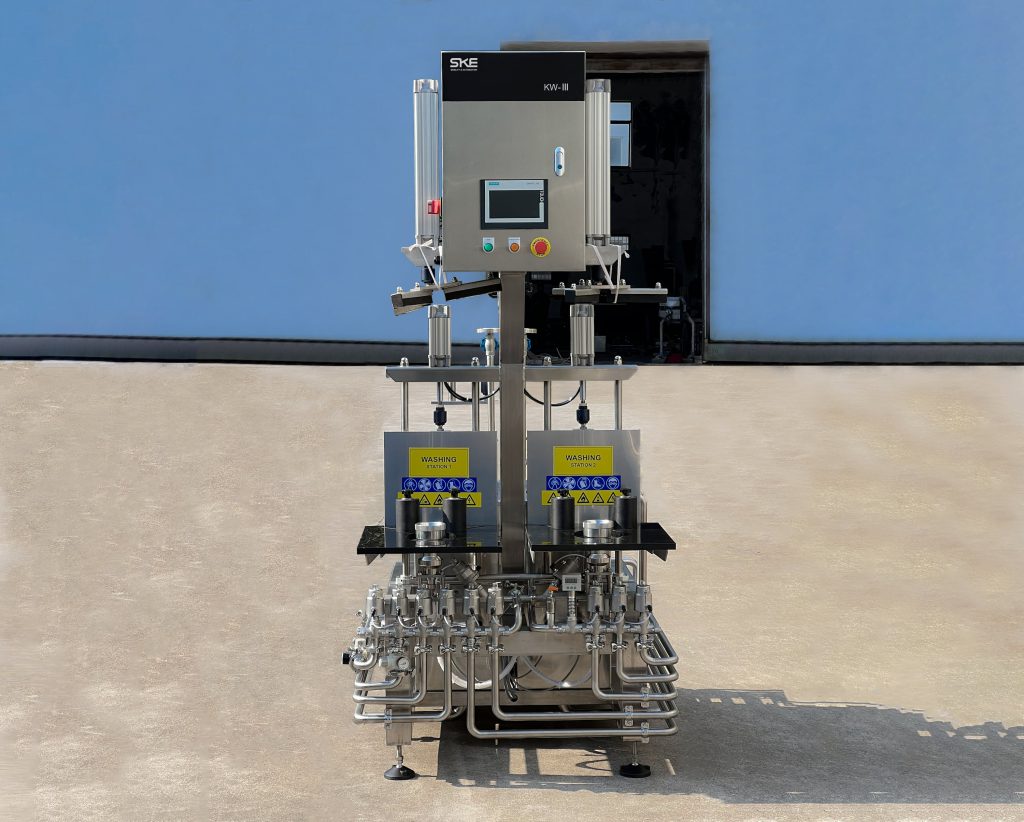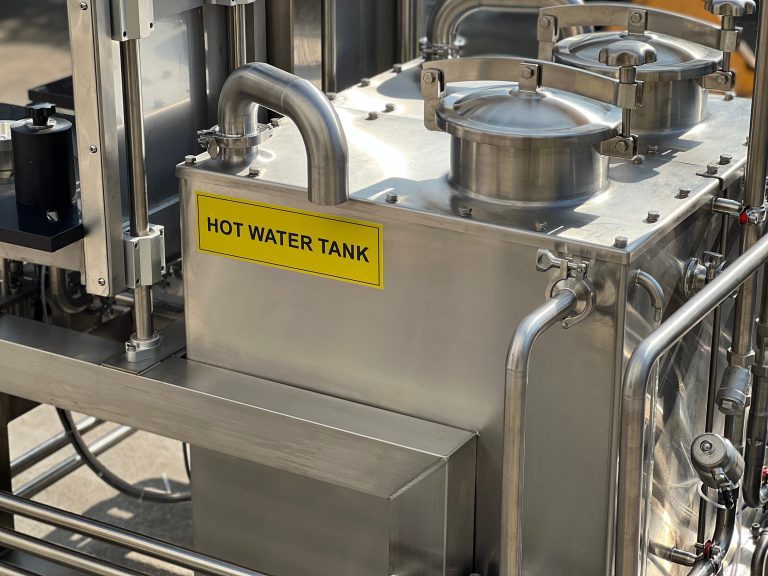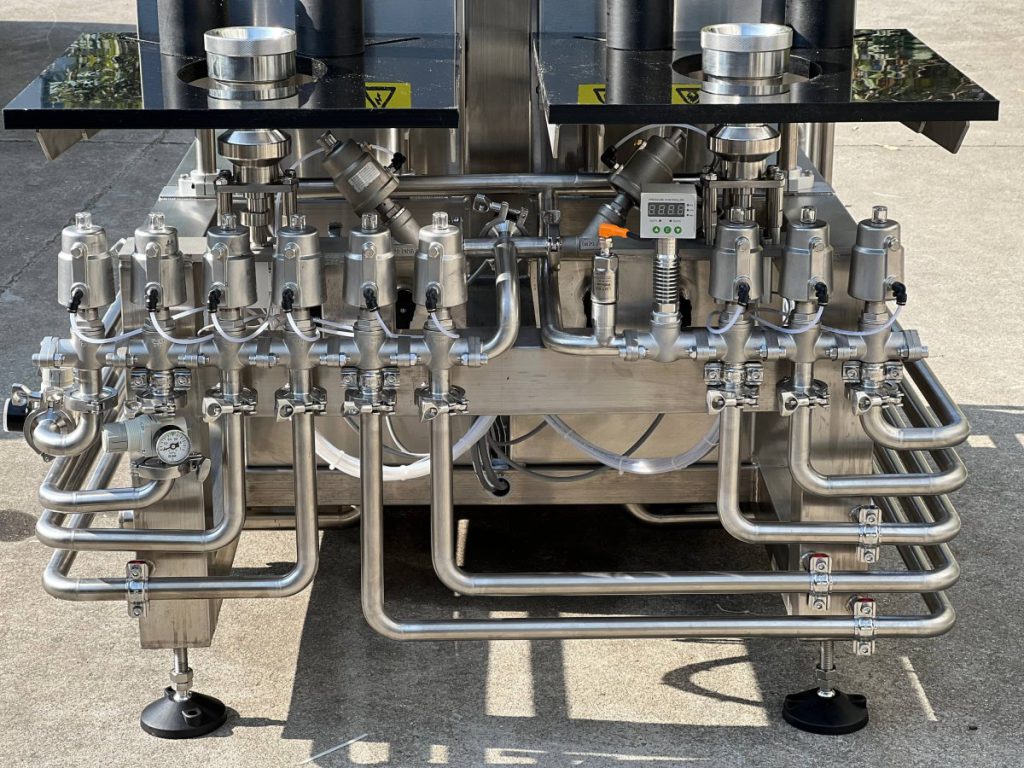Einführung

Selecting the appropriate liquid filler machine is a crucial decision for businesses in the food, beverage, and pharmaceutical industries. The right machine can significantly impact production efficiency, product quality, and overall operational costs. With a wide range of liquid filler machines available on the market, it can be overwhelming to choose the best one for your specific needs. This comprehensive guide will walk you through the essential factors to consider when selecting a liquid filler machine.
Verständnis Liquid Filler Machines
Liquid filler machines are automated equipment designed to accurately and efficiently fill liquid products into various containers, such as bottles, cans, and pouches. These machines come in different types and configurations, each suited for specific applications.
Types of Liquid Filler Machines:
- Piston fillers: Ideal for high-viscosity liquids, piston fillers provide precise filling by using a piston to draw and dispense the product. They are often used for products like ketchup, honey, and thick sauces.
- Gravity fillers: These fillers rely on gravity to fill containers, making them suitable for low-viscosity liquids. They are commonly used for filling water, juices, and other thin liquids.
- Time-pressure fillers: Combining time and pressure control, these fillers offer flexibility for various liquid types and container sizes. They are suitable for a wide range of products, including sauces, syrups, and detergents.
- Nozzle fillers: Nozzle fillers are versatile and can handle a wide range of products, from thin liquids to viscous substances. They are often used for filling bottles, cans, and pouches.
- Overflow fillers: These fillers ensure consistent fill levels by allowing excess liquid to overflow from the container. They are commonly used for filling products like cosmetics and pharmaceuticals.
Zu berücksichtigende Faktoren bei der Auswahl eines Liquid Filler Machine
- Product characteristics:
- Viscosity: The thickness of the liquid will determine the suitable filler type. High-viscosity liquids require piston fillers or time-pressure fillers, while low-viscosity liquids can be filled using gravity fillers or nozzle fillers.
- Density: The density of the liquid will affect the filling speed and accuracy. Denser liquids may require different filling methods or adjustments to the machine’s settings.
- Corrosiveness: If the liquid is corrosive, the filler machine must be made of materials that are resistant to corrosion, such as stainless steel.
- Container type and size:
- Form: The shape of the container will determine the type of filling nozzle or spout needed. For example, round bottles may require different nozzles than square bottles.
- Material: The material of the container will affect the filling process. For example, plastic bottles may require different filling methods than glass bottles.
- Größe: The size of the container will determine the capacity of the filler machine. Larger containers will require machines with higher capacity.
- Production rate: Your desired output will dictate the machine’s speed and capacity. If you need to fill a large number of containers per hour, you will need a high-speed filler machine.
- Genauigkeit: The required level of filling accuracy will impact the choice of filler. Some industries, such as pharmaceuticals, require extremely high levels of accuracy, while others may be less stringent.
- Automatisierung: Consider the level of automation needed, from manual to fully automated systems. Fully automated systems can increase efficiency and reduce labor costs.
- Cleaning and sanitation: The machine’s design should facilitate easy cleaning and meet industry hygiene standards. This is especially important for industries like food and pharmaceuticals.
- Budget: Evaluate the initial investment and ongoing operational costs. Consider the cost of the machine itself, as well as the cost of installation, maintenance, and repairs.
Comparing Different Liquid Filler Machines
| Besonderheit | Piston Filler | Schwerkraftfüller | Time-Pressure Filler | Nozzle Filler | Überlauffüller |
|---|---|---|---|---|---|
| Viscosity | Hoch | Niedrig | Medium to high | Various | Niedrig bis mittel |
| Genauigkeit | Hoch | Mäßig | Hoch | Mäßig | Mäßig |
| Geschwindigkeit | Mäßig | Hoch | Hoch | Hoch | Mäßig |
| Vielseitigkeit | Mäßig | Niedrig | Hoch | Hoch | Niedrig |
| Kosten | Hoch | Niedrig | Medium | Medium | Niedrig |
Additional Considerations

Maintenance and support: Consider the availability of spare parts and technical support. A reliable supplier can provide timely maintenance and assistance if needed.
Skalierbarkeit: Ensure the machine can accommodate future production increases. If your business is growing, you may need a machine that can be easily expanded or upgraded.
Einhaltung: Verify that the machine meets relevant industry standards and regulations. This may include compliance with food safety standards, environmental regulations, or other industry-specific requirements.
Abschluss
Die richtige Wahl Flüssigkeitsfüllmaschine is a complex process that requires careful consideration of various factors. By understanding the different types of fillers, evaluating your specific needs, and comparing the features of various options, you can make an informed decision that optimizes your production process.
Häufig gestellte Fragen
What is the most accurate type of Flüssigkeitsfüllmaschine?
Piston fillers are generally considered the most accurate, but the choice depends on the specific product and application.
How do I choose a liquid filler machine for viscous products?
For high-viscosity products, piston fillers or time-pressure fillers are the best options.
What is the difference between a gravity filler and a time-pressure filler?
Gravity fillers rely solely on gravity for filling, while time-pressure fillers use a combination of time and pressure control.
How can I ensure the accuracy of a Flüssigkeitsfüllmaschine?
Regular calibration, maintenance, and quality control measures are essential for maintaining accuracy.

